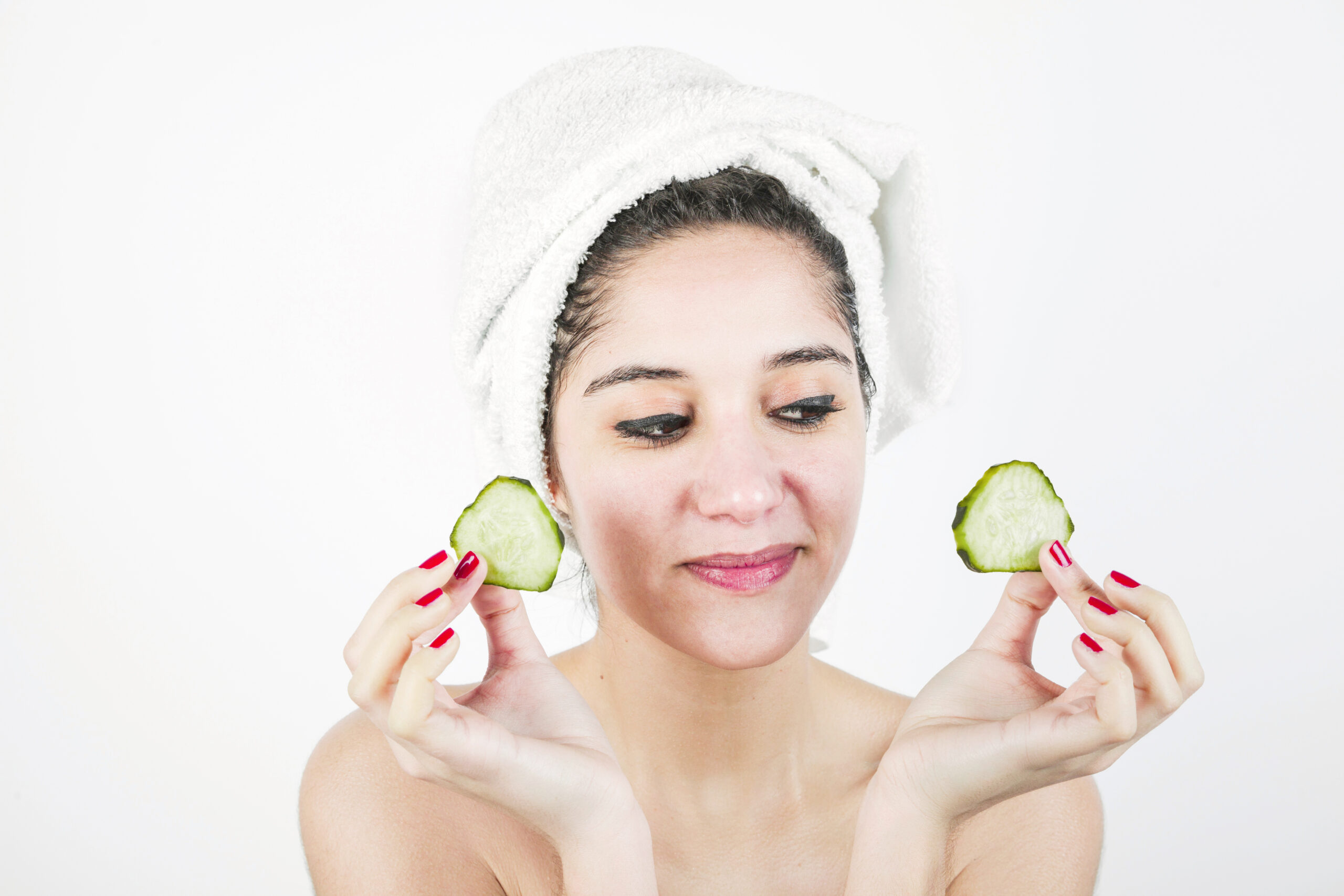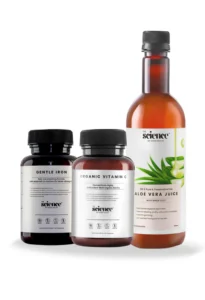Acne is one of the most common skin concerns worldwide, affecting teenagers, adults, and even people well into their 40s. It can cause pimples, redness, swelling, and sometimes long-lasting scars that affect confidence and self-esteem. Many turn to harsh chemical treatments, but these often bring side effects like dryness, peeling, and irritation. That is why more people are exploring safe, gentle alternatives.
One of the most trusted natural remedies is aloe vera for acne. This plant has been used for centuries in skincare and healing because it contains soothing, antibacterial, and anti-inflammatory properties. From reducing pimples to calming redness and even helping with scar marks, aloe vera has earned its reputation as a holistic solution.
In this guide, we will explore how aloe vera for acne works, its benefits, different ways to use it, precautions, comparisons with other remedies, and frequently asked questions, giving you everything you need to heal naturally.
What Makes Aloe Vera Effective for Acne?
The effectiveness of aloe vera for acne comes from its rich natural composition and its unique healing properties. When you apply aloe vera gel directly to the skin, you are delivering a combination of vitamins, minerals, and bioactive compounds that support skin repair.
Nutrients in aloe vera that help acne-prone skin include:
- Vitamins A, C, and E: powerful antioxidants that protect skin from free radical damage and support healing.
- Vitamin B12 and folic acid: help tissue repair and reduce inflammation.
- Minerals like zinc, magnesium, and calcium: regulate oil production and keep bacteria from multiplying.
- Enzymes and amino acids: encourage faster skin recovery after breakouts.
- Polysaccharides: hydrate the skin and create a thin protective barrier.
Healing properties of aloe vera for acne include:
- Antibacterial action that fights acne-causing bacteria.
- Anti-inflammatory benefits that soothe redness and swelling.
- Wound-healing power that helps skin recover quickly from pimples.
- Natural hydration without clogging pores, making it safe for oily skin.
This combination explains why aloe vera for acne is considered one of the best natural remedies, particularly for mild to moderate cases.
Proven Ways to Use Aloe Vera for Acne
There are multiple methods to use aloe vera for acne, ranging from simple direct application to more advanced DIY skincare blends. Below are some of the most effective approaches.
1. Pure Aloe Vera Gel Application
- Extract fresh gel from an aloe vera leaf.
- Apply directly to cleansed skin and leave on for 20 to 30 minutes.
- Rinse with lukewarm water and repeat daily.
This is the purest way to use aloe vera for acne, providing hydration, reducing irritation, and speeding up healing without any side effects.
2. Aloe Vera with Honey and Cinnamon
- Mix 2 tablespoons of aloe vera gel with 1 tablespoon of honey and a pinch of cinnamon.
- Apply as a mask for 15 minutes.
- Rinse with cool water.
Honey is naturally antibacterial, while cinnamon stimulates circulation. Combined with aloe vera for acne, this blend nourishes and repairs skin.
3. Aloe Vera with Lemon Juice
- Mix 2 tablespoons of aloe vera gel with 1 teaspoon of lemon juice.
- Apply gently and leave for 10 minutes only.
- Wash off to avoid irritation.
This remedy is particularly good for reducing dark spots left by acne. However, lemon can be irritating, so a patch test is essential before using it with aloe vera for acne.
4. Aloe Vera with Tea Tree Oil
- Combine 2 tablespoons of aloe vera gel with 2 drops of tea tree oil.
- Apply as a spot treatment to acne-prone areas.
- Leave for 20 minutes, then wash off.
Tea tree oil is strong against acne-causing bacteria, and when paired with aloe vera for acne, it offers a powerful yet balanced treatment. Always dilute tea tree oil to avoid irritation.
5. Aloe Vera with Turmeric or Apple Cider Vinegar
- Aloe vera with turmeric: Brightens skin, reduces pigmentation, and improves scars.
- Aloe vera with diluted apple cider vinegar: Acts as a natural exfoliant to remove dead skin.
These combinations enhance the natural effects of aloe vera for acne, giving both healing and brightening benefits.
6. Aloe Vera-Based Products
For those unable to prepare home remedies, aloe vera-based gels, creams, or sprays are excellent alternatives. Look for products with high concentrations of aloe vera and minimal chemicals.
Tips for choosing aloe vera skincare products:
- Select formulas that say “99% pure aloe vera” on the label.
- Avoid alcohol, fragrances, or parabens.
- Choose dermatologically tested and safe options.
When used consistently, even packaged products can deliver many of the same benefits as fresh aloe vera for acne.
Can Aloe Vera Help with Acne Scars?
A common question is whether aloe vera for acne can also treat scars. The answer is yes, but with certain limitations.
Aloe vera helps with:
- Reducing post-acne redness.
- Lightening mild pigmentation and marks.
- Supporting faster recovery after active breakouts.
Aloe vera does not fully treat:
- Deep pitted scars such as ice-pick or boxcar scars.
- Severe scarring caused by long-term cystic acne.
While aloe vera for acne scars can improve the skin’s surface, deep scars often require professional treatments like microneedling, chemical peels, or laser therapy.
Safety Precautions and Who Should Avoid Aloe Vera
Although aloe vera for acne is safe for most skin types, a few precautions should always be taken:
- Perform a patch test before applying on your face.
- Do not overuse lemon or essential oils with aloe vera, as they can irritate skin.
- Pregnant or breastfeeding women should avoid internal consumption of aloe vera without medical advice.
- People with sensitive skin should start with pure gel before trying combinations.
- Watch for rare allergic reactions like itching or redness.
Following these guidelines ensures you enjoy the benefits of aloe vera for acne safely.
Aloe Vera vs Other Natural Remedies
Many natural remedies are popular for acne. Here’s how aloe vera for acne compares with others:
- Aloe Vera: Gentle, hydrating, reduces redness, supports scar healing.
- Tea Tree Oil: Very strong antibacterial but can irritate sensitive skin.
- Turmeric: Brightens skin, helps fade marks, but may stain clothes and skin.
- Green Tea: Rich in antioxidants, reduces oil production, but requires regular use.
Overall, aloe vera for acne is the most balanced option, especially for sensitive or combination skin. Stronger remedies like tea tree oil may work faster but can cause side effects.
Heal Beyond Acne
If your acne persists beyond what aloe vera for acne can heal, it may be time to look deeper. True healing goes beyond topical care, it involves restoring internal balance, nutrition, and overall wellness.
Smriti Kochar’s Ultra-Wellness Program focuses on natural healing with proven success. Instead of only treating symptoms, it addresses the root cause of skin and health issues. Take the first step toward your healthiest, most radiant skin by starting your journey today. Start Your Healing Journey Now.
Extra Support for Healthy, Glowing Skin
In addition to natural remedies like aloe vera, you can boost your skin health with trusted formulations. The Glowing Skin Bundle is designed to nourish your skin from within, supporting clarity, hydration, and lasting radiance.
Final Thoughts
If you are looking for a safe, natural, and effective solution, aloe vera for acne is one of the best remedies you can start with. Its hydrating, healing, and soothing qualities make it suitable for daily use and long-term results.
While it may not completely replace professional treatments for severe acne, it can dramatically improve mild to moderate cases. The key is consistency, patience, and combining it with a healthy lifestyle. Acne is often a sign of imbalance, and healing from within is as important as topical care.
By including aloe vera for acne in your skincare routine, you are choosing a natural path toward clearer, calmer, and healthier skin.
Read Our Latest Blogs
Difference Between Acne and Pimples | How to Remove Acne Scars Naturally in a Week | What Causes Acne | Body Acne Treatment | Acne Free Diet Plan – 30 Days Clearer Skin
Frequently Asked Questions
Ans: No, aloe vera cannot remove acne overnight. It reduces redness and swelling quickly, but visible results on pimples or scars usually take weeks of consistent use.
Ans: Yes, aloe vera for acne is excellent for oily skin because it hydrates without clogging pores and controls excess sebum production.
Ans: Pure aloe vera gel is safe to leave overnight. It provides deep hydration, calms skin, and helps pimples heal faster.
Ans: Aloe vera for acne scars can reduce pigmentation, dark spots, and redness, but it will not completely erase deep scars.
Ans: Rarely, yes. Some people may experience itching or redness. Always do a patch test before applying it to your face.
Ans: Daily use is recommended. You can apply pure aloe vera gel once or twice a day for the best results.
Ans: Yes, you can safely combine aloe vera for acne with honey, turmeric, or diluted tea tree oil. Avoid mixing with too many strong ingredients at once.
Ans: Aloe vera is gentler and better for sensitive skin. Tea tree oil is stronger against bacteria but can cause dryness or irritation. Many people find the best results from combining them in small amounts.




